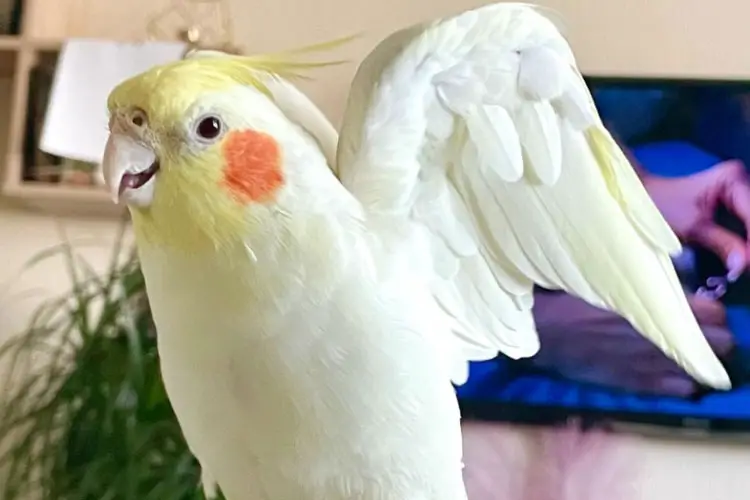Cockatiels are one of the most social birds out there and make amazing pets. These birds are very vocal and playful with their mates and keepers. While taking care of cockatiels is relatively easy, understanding their motions and signs are important. These signs help the keepers to be alert about the health of the cockatiels.
Wondering, why is my cockatiel yawning and shaking its head? Yawning and shaking heads in cockatiels are common and do not always indicate danger. However, keeping an eye on the movements of your cockatiel is important when the yawning and shaking head becomes excessive. Try to identify the reason behind these movements and talk to a vet if necessary.
To help you know why your cockatiel is shaking its head and yawning, we have pieced the guide together. Here, we will discuss the reasons and how you can help your beautiful pet bird. So, continue reading the guide till the end.
Why Is My Cockatiel Yawning And Shaking Its Head?
There are several reasons why cockatiels yawn and shake their heads. Yawning is common in cockatiels and is typically a sign of tiredness or stress. However, it often also expresses happiness and can also be caused due to contagious yawning.
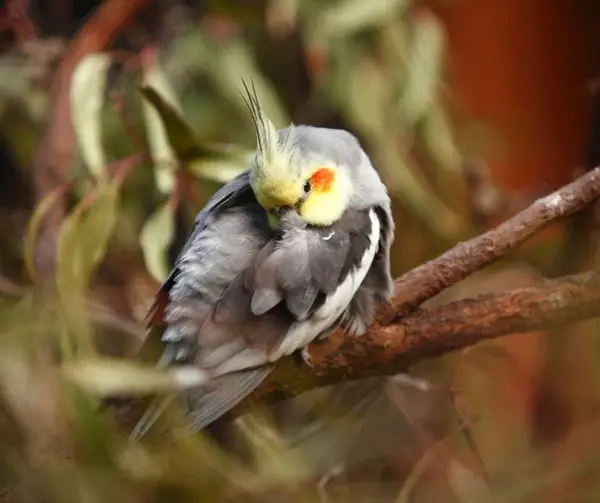
Similar to yawning, cockatiels shaking their heads is also a common movement of the birds. The shaking of the head in cockatiels is typically seen as a sign of excitement or hunger. It is also seen as a sign of annoyance, attention-seeking, and many more.
Cockatiel Is Yawning and Shaking Its Head: When to Worry
When yawning and head shaking occur simultaneously and grow more regular, it might be a warning indication of impending disaster. Let’s have a look at some of the unwanted causes of your cockatiel’s head shaking and yawning.
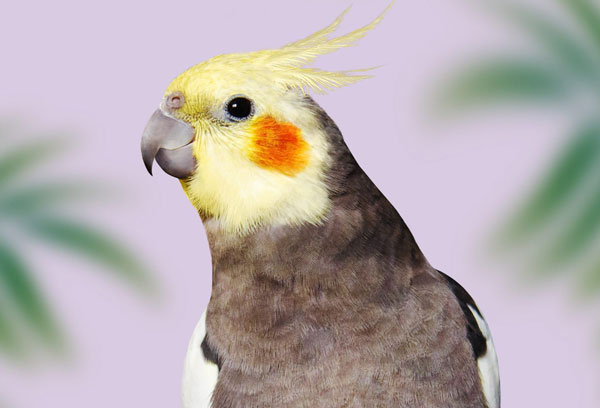
1. Stuck Food Or Obstruction
One of the top reasons behind cockatiels yawning and shaking their heads is an obstruction in the throat or crop. There are times when food or other items get stuck in the throat of the birds. The cockatiels yawn and continue to shake their heads to remove the obstruction.
In cases like these, give the cockatiel water to help in the removal of the obstruction. However, make sure that you do not engage with the process or try to remove it in any way. If the behavior persists, take the cockatiel to a vet as soon as possible.
2. Infection
Another major reason behind this behavior of cockatiels indicates an ear infection. Much like humans, cockatiels experience an immense amount of pain with an ear infection. When the cockatiels yawn and bob their head, it is an attempt to get rid of the pain in their ears.
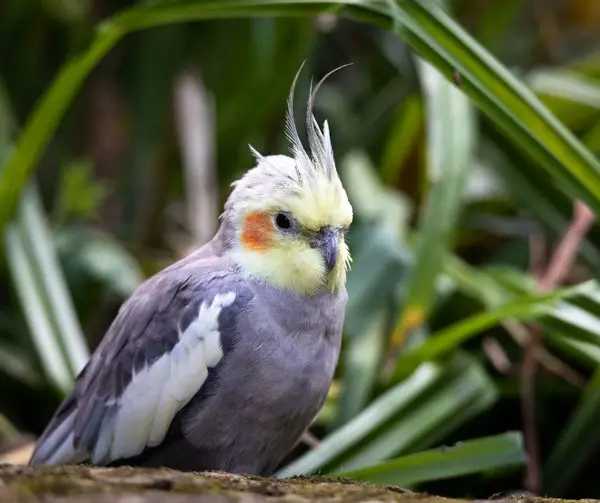
This can also be a sign of other infections such as yeast, sinus, psittacosis, or candidiasis. Treating the infections before they take a deadly turn is important to ensure the health of the cockatiels. Take the birds to a vet and make sure that they get the required treatment.
3. Jaw Disorder or Injury
Jaw disorder or injury of the cockatiels can also be the reason why they shake their heads and yawn excessively. This movement helps to reduce the pressure on the jaws. However, a disorder or injury on the jaw can significantly affect the health and eating habits of cockatiels.
So, if you ever notice any such signs of distress in your cockatiels, make sure to take them to the vet first. The vet will conduct the required checks and make sure that the cockatiels are treated properly.
4. Respiratory Trouble
Common colds and allergies are highly common in cockatiels. Even though these are common, ensuring proper care and treatment is essential to ensure the good health of the cockatiels. In a few instances, when the nostrils of the cockatiels get blocked due to cold or allergies, the birds try to breathe through their mouth.
This action of breathing is often seen as yawning as the bird continuously opens and closes its mouth. However, in cases like these, the best option is to consult a vet. Talk to your vet and ensure the treatment of the bird accordingly.
Normal Vs. Abnormal Yawning and Head Shaking: How to Distinguish?
As we discussed earlier, both yawning and movement of the head are common in cockatiels. And these movements can occur due to hunger, lack of sleep, fatigue, and many more.
However, considering the situation to be serious is important when the yawning and head movement becomes excessive.
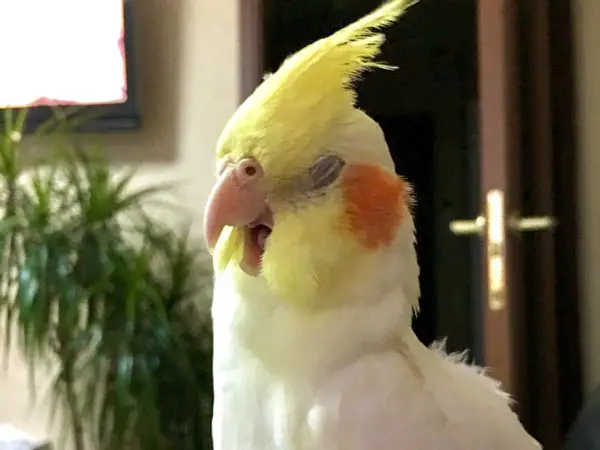
Keep an eye on the cockatiel and try to identify the cause behind the situation. If you notice that the cockatiel is agitated or stressed, try to distract and cheer it up. But if this continues, take the bird to a certified vet as soon as possible.
Do Cockatiel Shake Head When Happy?
Cockatiels shaking their heads often represents excitement or happiness. Sometimes, the cockatiels imitate their keepers or try to impress their mates by shaking their heads. But in a few instances, the situation is the opposite and is a sign of trouble.
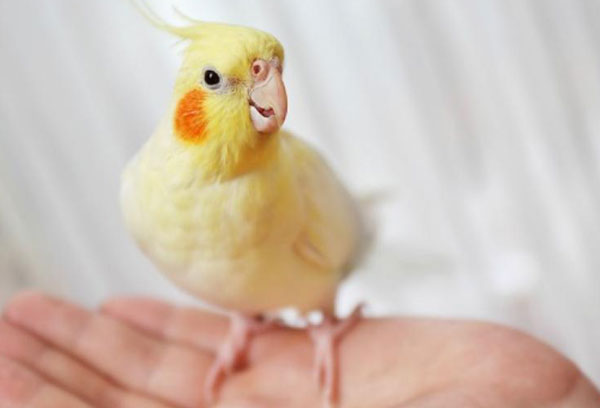
When you notice the cockatiel shaking its head, keep a close eye on it. Monitor the bird’s behavior or movements and take it to the vet if needed. Ensuring the proper health of your tiny friend is a must.
FAQ
We understand one might be curious when their pet shows unusual symptoms. To help clear some confusion, we’ll answers some of the most frequent questions people have in this section.
Cockatiels keep on opening and closing their mouths if they have food or any other item stuck in their throats or corps. Not only that, but this movement is also common if cockatiels catch a cold and cannot breathe properly through their nostrils. In cases like these, take your bird to the vet, as it can be life-threatening.
The cockatiels continuing to shake their heads when their keeper talks or plays music is quite common. It is a positive sign that the cockatiels are enjoying the voice of the keeper or are happy with the situation. This is also a clear sign of excitement and amusement.
Head shaking or bobbing is seen as a positive sign in cockatiels. There are often instances when the male or female cockatiels shake their heads at their partners. Through this movement, the birds try to impress and express their affection to their partners.
Final Words
So, why is my cockatiel yawning and shaking its head? While yawning or shaking the head is a normal movement in cockatiels, the situation can sometimes take a major turn. Thus, keeping an eye on the cockatiels is important when they yawn and continue to shake their hands.
Now that we are at the end, we hope that you know the reasons why your cockatiel is behaving in this manner. Cockatiels are a prevalent choice for pets and are relatively easy to take care of. Just give a little bit of attention to their condition and you should be able to differentiate between its normal and abnormal conditions.
